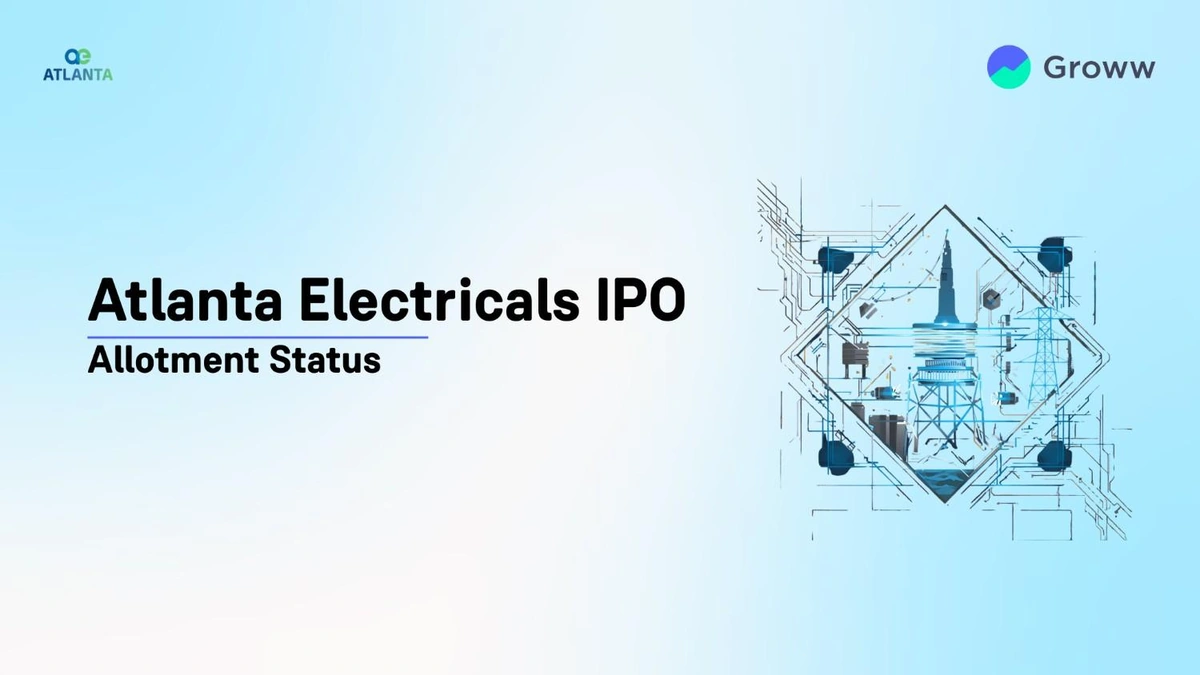Broadcom Share Price | The AI Giant Hiding in Plain Sight (And Why You Should Be Paying Attention)
Let’s grab a virtual coffee and talk about something fascinating. Right now, the entire world is obsessed with AI stocks. You can’t scroll through a news feed without seeing Nvidia’s name plastered everywhere. And for good reason they’re the rockstars, the lead singers selling out stadiums with their mind-bending GPUs.
But here’s the thing. While everyone is watching the lead singer, there’s another giant on stage, quietly building the entire stadium, managing the sound system, and selling the high-margin VIP tickets. That, my friend, is Broadcom.
You might have seen the Broadcom share price (ticker: AVGO) making some wild moves lately and wondered, “Who are these guys, and why are they suddenly in the same league as the tech titans?” It’s a fantastic question. Because understanding the answer reveals so much more than just a stock chart; it unveils a masterclass in business strategy that’s shaping the very foundation of our digital world. This isn’t just another chip company. It’s something different. Something… smarter.
So, What Exactly Does Broadcom Do?

At first glance, this seems simple. They make chips. But that’s like saying a master chef just “cooks food.” The reality is far more nuanced and, frankly, more brilliant.
Think of Broadcom as the ultimate infrastructure provider for the digital age. They don’t just sell one thing; they sell a whole ecosystem. Their business is split into two massive, powerful arms:
- Semiconductor Solutions: This is the hardware side. They create a dizzying array of chips that are absolutely essential for modern technology. We’re talking about the high-end networking chips that power data centers, the Wi-Fi and Bluetooth chips in your iPhone, and the components that run your broadband connection. They are, in many ways, the plumbing of the internet. You don’t see it, but nothing works without it.
- Infrastructure Software: This is where it gets really interesting, especially after their monster acquisition of VMware. They sell complex software that helps the world’s largest corporations manage their IT infrastructure. This isn’t software you download from the app store; it’s the heavy-duty stuff that runs banks, airlines, and governments.
The magic is how they weave these two together. They go to a massive company like Apple or Google and say, “Hey, you need the world’s best connectivity chips for your new device? We’ve got them. Oh, and you need the software to manage the massive data centers that support those devices? We’ve got that too.” It’s an incredibly sticky business model.
The VMware Gamble | Why Broadcom Spent $69 Billion on Software

When Broadcom announced it was buying VMware for a jaw-dropping $69 billion, a lot of people in the industry scratched their heads. Why would a hardware-focused company spend so much on a software firm? It seemed like a wild, expensive detour.
But CEO Hock Tan, one of the most underrated strategists in tech, was playing chess while others were playing checkers.
He wasn’t just buying a software company. He was buying a customer list. The Broadcom VMware acquisition gave them direct access to the IT departments of virtually every major corporation on the planet. VMware’s technology is the gold standard for creating and managing “private clouds” the secure, in-house data centers that big companies rely on for their most critical operations.
Here’s the real kicker: By owning VMware, Broadcom can now bundle its offerings. Imagine being a Chief Technology Officer. Broadcom can offer you a single, integrated package for your hardware (networking chips) and your software (cloud management). It simplifies things immensely and locks you into their ecosystem. It was a bold, audacious move to transform what Broadcom does from a parts supplier into a strategic partner for the world’s biggest companies. And judging by the recent earnings reports, the gamble is paying off spectacularly. For a deeper dive into market strategies, you can sometimes see similar bold moves in different sectors, like the M.B. Engineering Share Price story.
The AI Elephant in the Room | Broadcom’s Secret Weapon

Okay, let’s talk about the big one: Artificial Intelligence. How does Broadcom fit into the AI gold rush?
This is what fascinates me most. While Nvidia sells the “shovels” (GPUs) to every gold prospector out there, Broadcom has a different strategy. They are the go-to partner for the biggest prospectors think Google and Meta to design and build custom shovels.
These are called ASICs (Application-Specific Integrated Circuits). Instead of a general-purpose GPU, an ASIC is a chip designed from the ground up to do one specific task incredibly well and efficiently. For Google, this is their Tensor Processing Unit (TPU), the engine behind their AI services. Broadcom is a key partner in co-designing and manufacturing these custom Broadcom AI chips .
This is an unbelievably lucrative business. Why?
- It’s a partnership, not a transaction. They work for years with these tech giants, ensuring a steady, predictable, and high-margin revenue stream.
- Less competition. The market for general-purpose GPUs is heating up. The market for co-designing a custom chip for Google is… well, it’s a very exclusive club.
- It’s the future. As AI models get more specialized, the demand for custom silicon that can run them faster and with less power is going to explode.
So, when you see the AVGO stock price surge after their earnings report, it’s often because they’ve announced massive growth in their AI-related revenue and raised their forecast for the year. The recent announcement of a 10-for-1 stock split is just the cherry on top, making the shares more accessible to retail investors and generating even more buzz.
Should You Care? What This Means for Investors in India

So, we’ve established Broadcom is a beast. But what does this mean for you, an investor sitting in Mumbai, Bangalore, or Delhi?
First, it’s a powerful lesson in looking beyond the headlines. The most obvious story (Nvidia) isn’t always the only story. Understanding the “picks and shovels” plays the companies providing essential infrastructure can reveal incredibly robust investment opportunities. While some investors chase explosive growth, understanding the foundation, like with the Kaytex Fabrics IPO GMP , can be equally important.
Second, is Broadcom a good investment ? That’s a question for you and your financial advisor. However, it presents a unique profile. It’s a high-growth AI play, but it also pays a significant dividend something very rare in the tech world. This “growth and income” combination is highly attractive. For Indian investors looking to diversify into US markets, it represents a different kind of tech investment compared to pure-growth, no-dividend stocks.
Platforms like IndMoney, Vested, or Groww have made it easier than ever for Indians to invest in US stocks. Looking at a company like Broadcom isn’t just about its share price; it’s about understanding a business that has its tentacles in nearly every major tech trend: cloud computing, smartphones, broadband, and now, the generative AI revolution.
It’s the quiet giant. The one that doesn’t need the spotlight because it owns the stage. And in this noisy, hype-filled market, that might be the most powerful position of all.
Your Top Questions About Broadcom, Answered
Is Broadcom just another chip company like Nvidia?
No, not at all. While both are in semiconductors, their models are very different. Nvidia primarily sells general-purpose GPUs to a wide market. Broadcom focuses on a wider range of connectivity chips and, crucially, partners with mega-cap tech companies to build custom AI chips (ASICs). Plus, about a third of Broadcom’s business is now high-margin infrastructure software, thanks to the VMware acquisition.
Why did the Broadcom share price jump so much recently?
The recent surge was driven by a stellar earnings report that blew past expectations. The company reported very strong demand for its AI-related products and significantly raised its revenue forecast for the full year. They also announced a 10-for-1 stock split, which generated a lot of positive investor sentiment.
What is a stock split and why does it matter?
A stock split increases the number of shares while lowering the price per share, but it doesn’t change the company’s total value. For example, in a 10-for-1 split, if you own one share worth $1,600, you’ll now own ten shares worth $160 each. It’s often done to make the stock more affordable for retail investors, which can increase demand and liquidity.
What are the biggest risks with AVGO stock?
Like any company, there are risks. Broadcom is heavily reliant on a few very large customers (like Apple). Any disruption in those relationships could hurt revenue. The integration of VMware is also a massive undertaking, and any stumbles there could be problematic. Finally, as a key player in the global supply chain, it’s exposed to geopolitical tensions, particularly between the US and China. For more on this, you can check out their latest investor filings on theofficial Broadcom investor relations website.
How does Broadcom make money from AI?
Broadcom’s primary AI revenue comes from designing and supplying custom AI accelerators, or ASICs, for a small number of very large customers, like Google and Meta. They don’t compete with Nvidia’s general-purpose GPUs; instead, they provide a specialized solution for the biggest players who need optimized performance for their specific AI workloads.













